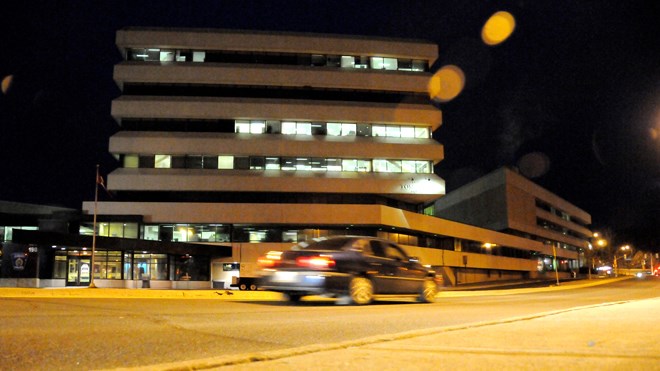City council voted Tuesday to have staff develop a policy that will see Greater Sudbury Utilities pay the city a share of its net profits.
But they rejected a motion that would have required the first payment of $1 million by September 2019, over fears such a short timeline would force the GSU to raise rates or delay capital work to find the money.
Tuesday's debate was heated at times, with the councillors who sit on the GSU's board objecting to the motion coming to city council without speaking with them first.
The issue goes back to the early 2000s, when cities with public utilities were required to create separate entities, allowing them to operate at arms-length from the municipality. In return, cities received what's called a 'promissory note.'
Similar to a mortgage, the GSU was valued at $54 million, and the promissory note requires them to pay interest on that amount to the city every year at a rate of 7.25 per cent, or $3.8 million annually.
The terms of the transfer also required the GSU board to come up with a dividends policy, which would outline how much of GSU profits would go to the city. But that has not happened.
Ward 7 Coun. Mike Jakubo said the oversight came to light at the utility's AGM and was part of audit recommendations by Auditor General Ron Foster.
“He noted there was something missing in our shareholder declaration,” Jakubo said. “We want to see something in place.”
While a policy doesn't mean the GSU would pay dividends every year, Jakubo said as the sole shareholder, the city needs to address how profits are shared, especially since they total $27 million over the last 10 years.
“To ask for $1 million of that is peanuts,” he said. “We need to have this discussion.”
But Ward 6 Coun. Rene Lapierre, who is the vice-chair of the GSU board, said he has no issues with creating a policy, but disagrees with the idea the city has been missing out on revenue.
“It sounds like the city isn't already getting its fair share,” Lapierre said, pointing to the more than $60 million in interest payments on the promissory note.
And Ward 1 Coun. Mark Signoretti, who also sits on the board, said he was offended this would be brought out for public debate, instead of talking to one of the councillors who sit on the board first.
“We have to trust each other,” Signoretti said.
The GSU has plowed profits into capital projects, he said, to ensure the utility avoids the sort of problems the city faces with infrastructure, and “to ensure there's no price shock to consumers down the road.”
Taking a slice of GSU's net profits would mean the city would have to pay taxes on that amount.
“Why would we want to give more money to the province?” Singoretti said. “You're saying you want a dividend on the back of ratepayers … To me it's very disrespectful.”
“I'm happy we're in this open setting to discuss this policy,” Jakubo shot back. “There's no better place.”
A chartered accountant, Jakubo said the city would not pay taxes on dividends, since they are after-tax profits.
“You can't say it would be costing anybody – certainly not the ratepayers,” he said.
A dividends policy could give the GSU the option to direct profits to capital projects, Jakubo said. While GSU customers pay lower rates than Hydro One, he said that means the 29,000 Hydro One ratepayers in Sudbury receive no benefit from GSU.
“I wouldn't say this if GSU is struggling,” Jakubo said. “But it's not like that.”
And Ward 10 Coun. Fern Cormier said the motion was to establish a dividend policy, something that should have happened a long time ago.
“We're the shareholders,” Cormier said. “From that perspective alone, I don't see a problem … But I don't want to vote for something, obviously, that will cause hydro rates to increase.”
That's because of concerns that forcing the GSU to pay a dividend in 2019 could lead to higher rates or reduced capital investments. So Jakubo separated his motion in two: one calling for a dividend policy to be prepared, and a second calling for the dividend to be paid this year.
Mayor Brian Bigger, also an accountant, was in support of the plan.
“To me it's incredible that, in 2018, we are asking for this information,” Bigger said. “And I haven't heard anyone explain to me why this would cause hardship to the GSU.”
“I have no problem with a dividends policy,” Signoretti said, adding he just resented the implication that the GSU has withheld information from anyone.
In the end, the motion to establish the dividend policy was approved easily, while the motion to have a $1 million dividend paid to the city by fall 2019 was defeated.
